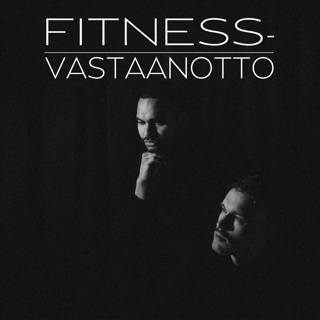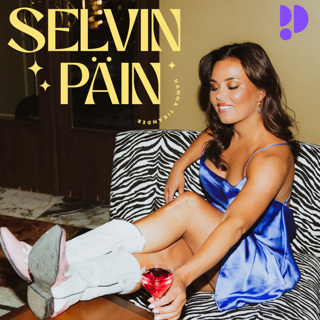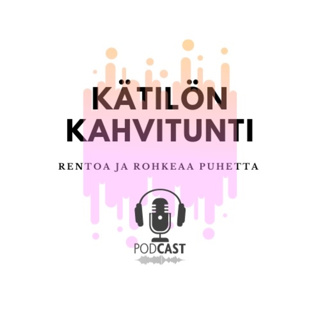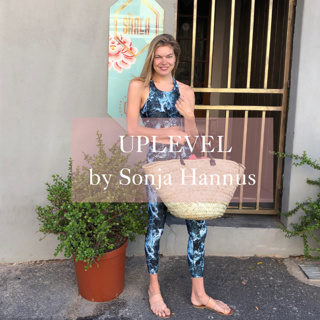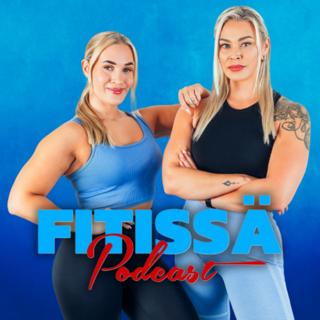
BITESIZE | Is Everything You Know About Depression and Anxiety Wrong? | Johann Hari #393
CAUTION ADVISED: this podcast contains swearing. For the past few decades, almost every year, levels of depression and anxiety have increased across the Western world. But why? Feel Better Live More Bitesize is my weekly podcast for your mind, body, and heart. Each week I’ll be featuring inspirational stories and practical tips from some of my former guests. Today’s clip is from episode 94 of the podcast with the brilliant Johann Hari. Johann went on a forty-thousand-mile journey around the world to interview leading experts about what causes depression and anxiety, and what solves them. In this clip he explains that although we’ve been told a story that drugs are the solution, in many cases the cause is not in our biology but in the way we live. Support the podcast and enjoy Ad-Free episodes. Try FREE for 7 days on Apple Podcasts https://apple.co/feelbetterlivemore. For other podcast platforms go to https://fblm.supercast.com. Show notes and the full podcast are available at drchatterjee.com/94 Follow me on instagram.com/drchatterjee Follow me on facebook.com/DrChatterjee Follow me on twitter.com/drchatterjeeuk DISCLAIMER: The content in the podcast and on this webpage is not intended to constitute or be a substitute for professional medical advice, diagnosis, or treatment. Always seek the advice of your doctor or other qualified health care provider with any questions you may have regarding a medical condition. Never disregard professional medical advice or delay in seeking it because of something you have heard on the podcast or on my website.
12 Loka 202314min

Menopause: How To Burn Fat, Sleep Better & Live In Harmony With Your Hormones with Dr Mindy Pelz #392
CAUTION: This podcast discusses fasting, and its advice may not be suitable for anyone with an eating disorder. If you have an existing health condition or are taking medication, always consult your healthcare practitioner before going for prolonged periods without eating. I first spoke to today’s guest on Episode 342 - and that episode has become one of the most downloaded episodes of the year - it has transformed the lives of many women - and men and I think this conversation will do the same. Dr Mindy Pelz is a nutrition expert, a pioneer on the subject of women’s health & hormones, and the author of Fast Like A Girl and The Menopause Reset: Get Rid of Your Symptoms and Feel Like Your Younger Self Again. Mindy’s aim is to empower women by explaining the biological changes that take place each month and throughout a woman’s life. She believes that, armed with that knowledge, they can improve their health, happiness and relationships. But this conversation is just as relevant for men. We discuss whether weight gain is inevitable as we age. Is it our fate – and particularly a woman’s fate – to gain weight once she hits 40? It can be, she tells me, but only if women don’t know how to harness their hormones to prevent it. She explains how declining oestrogen levels can make women insulin resistant which may be one the reasons why the diet and lifestyle that worked for them in their 20s and 30s, no longer does once they hit 40. At the same time, declining levels of progesterone, the calming hormone, can result in lower-quality sleep, more perceived stress and increased levels of the stress hormone cortisol - which, in and of itself, will contribute to an increase in belly fat. It makes so much sense when Mindy explains it, but unfortunately, this information is still not widely known. We cover so many different topics, including: How to adjust when and what you eat during different phases of your cycle. The importance of gut health when thinking about hormonal health. Why women often handle stress in a different way to men. The impact that hormonal changes can have on brain function. The practical steps we can take to improve our sleep. The importance of lifestyle changes irrespective of whether a woman chooses to have HRT or not. The best times in a woman’s cycle to resolve conflict and deal with relationship issues. This episode is jam-packed with insightful information and practical take-homes. I hope you enjoy listening. Thanks to our sponsors: https://naturalmat.co.uk/livemore https://boncharge.com/livemore https://drinkag1.com/livemore Show notes https://drchatterjee.com/392 DISCLAIMER: The content in the podcast and on this webpage is not intended to be a substitute for professional medical advice, diagnosis, or treatment. Always seek the advice of your doctor or qualified healthcare provider. Never disregard professional medical advice or delay in seeking it because of something you have heard on the podcast or on my website.
10 Loka 20232h 21min

The Secret To Pain-Free Running (and Walking!) with Helen Hall (Re-release) #391
Today’s episode is a re-release of a conversation I had just over 2 years ago, a few weeks after completing the London marathon for the very first time. I have decided to re-release it because I am seeing so much online about people being injured, struggling with their running, their walking or their sport. I believe that this conversation - and my wonderful guest - can help. My guest is my dear friend, Helen Hall. Helen is a movement therapist, she's a running coach, a pain expert…in fact, to be frank, all of these labels feel a little bit limiting - in many ways, I would call her a detective for the human body. Helen has had a lifelong passion for analysing posture and movement, and her clients include elite athletes as well as regular everyday folk who simply want to walk or run pain-free. She combines objective clarity from motion analysis technology, 46 years of visual experience, and study in the field, to seek out the root causes of chronic pain and injury that often seem resistant to standard treatment protocols. Helen first shared her movement philosophy in her wonderful book Even With Your Shoes On. More recently, she has launched an online course called PFM Pilot. It is aimed at both professionals working in the field of movement, pain, and injury, and also for amateurs keen to learn more and help themselves. We look at the core principles of Helen’s approach. Awareness is everything and she teaches clients to really notice what their body is doing. Where is your head sitting? How are you using your arms? It’s only when you’ve noticed that you can begin to change. And changing means becoming more efficient – learning the adjustments that help you to move with freedom. Movement, Helen points out, is a ‘job share’. We need to be able to recruit as much of our bodies as we can to do it well. I can testify to this holistic approach. Working with Helen hasn’t just changed my running, it’s helped me to walk faster, breathe better and stand more comfortably. It’s made me aware of how past injuries and trauma can affect you for decades. I’ve even learned how the surgery I had for appendicitis as a child played a huge part in my experience running the London Marathon. And, this conversation is my first real deep dive into my marathon experience. It wasn’t the race I’d planned, but it turned out to be the race I needed. Helen helps me unpack why I found it so emotional and explains why my physical struggles were a sign of progress not limitation. I hope this conversation conveys just how valuable I think Helen’s approach is. Whether running is for you or not, I know it’ll get you thinking about how you’re sitting or standing right now, and noticing how you use your body for the rest of the day. Thanks to our sponsors: https://www.vivobarefoot.com/livemore https://drinkag1.com/livemore Show notes https://drchatterjee.com/391 DISCLAIMER: The content in the podcast and on this webpage is not intended to be a substitute for professional medical advice, diagnosis, or treatment. Always seek the advice of your doctor or qualified healthcare provider. Never disregard professional medical advice or delay in seeking it because of something you have heard on the podcast or on my website.
7 Loka 20232h 2min

BITESIZE | How to Improve Your Brain Health as You Age | Dr Tommy Wood #390
In the UK, one in 14 people over 65 will develop dementia, with that figure rising to one in six once we’re over 80. But there are plenty of simple, enjoyable things that we can all start doing right now to improve our brain health and stave off age-related dementia. Feel Better Live More Bitesize is my weekly podcast for your mind, body, and heart. Each week I’ll be featuring inspirational stories and practical tips from some of my former guests. Today’s clip is from episode 316 of the podcast with Dr Tommy Wood. In this clip, Tommy explains why cognitive decline in later life is not inevitable and the steps we can take now to keep our brain healthy at any age. Support the podcast and enjoy Ad-Free episodes. Try FREE for 7 days on Apple Podcasts https://apple.co/feelbetterlivemore. For other podcast platforms go to https://fblm.supercast.com. Show notes and the full podcast are available at drchatterjee.com/316 Follow me on instagram.com/drchatterjee Follow me on facebook.com/DrChatterjee Follow me on twitter.com/drchatterjeeuk DISCLAIMER: The content in the podcast and on this webpage is not intended to constitute or be a substitute for professional medical advice, diagnosis, or treatment. Always seek the advice of your doctor or other qualified health care provider with any questions you may have regarding a medical condition. Never disregard professional medical advice or delay in seeking it because of something you have heard on the podcast or on my website.
5 Loka 202315min

How To Live A Long & Healthy Life with Dr Peter Attia #389
Imagine yourself in the last decade of your life. What would you like to be able to do? I’m talking about the simple stuff, such as walking up a flight of stairs without losing your breath or picking up your grandchild. How about being able to stand up unaided, after sitting comfortably on the floor? Or simply being able to get yourself on and off the toilet with ease? It’s so easy to assume these everyday movements will still be easy when we’re old. But my guest this week wants us to get real to the fact they probably won’t – unless we take action now. Dr Peter Attia is a medical doctor and founder of the Early Medical Practice, a private clinic in America, which helps patients lengthen their lifespan and improve their ‘healthspan’. He is the author of the New York Times bestseller: Outlive: The Science and Art of Longevity. In our first conversation (Ep 356) Peter explained how years of research have shown him that physical activity is the number one predictor of longevity. In this new episode, we unpack what that means and what strategies you can use to live a long and healthy life. Peter explains a concept that he calls the Centenarian Decathlon – a novel, but specific way of thinking about the various forms of movement we might require IF we want to be strong, fit, and active in our later years. He explains you need to be a good generalist with a high peak cardiorespiratory fitness, a wide aerobic base, functional strength, and good levels of stability, and why each of those metrics is important and how we can start improving them. If you’re in your 30s, 40s, 50s, or 60s – then training today for your twilight years might seem too distant a goal to feel motivating. If you’re active now, it’s easy to think you’ll be fine by then. But, Peter says, you’re kidding yourself if you think that your day-to-day function will not decline, as you get older. And, so he wants to empower us and demonstrate what we need to do today, to ensure we will have the life we want later. We also cover resistance training, Zone 2 training, grip strength, and foot strength, training for teenagers, training for women around menopause and so much more. This is an insightful episode, full of practical advice and wisdom. I hope you enjoy listening. Support the podcast and enjoy Ad-Free episodes. Try FREE for 7 days on Apple Podcasts https://apple.co/feelbetterlivemore or via https://fblm.supercast.com. Thanks to our sponsors: https://www.vivobarefoot.com/livemore https://www.calm.com/livemore https://drinkag1.com/livemore Show notes https://drchatterjee.com/389 DISCLAIMER: The content in the podcast and on this webpage is not intended to be a substitute for professional medical advice, diagnosis, or treatment. Always seek the advice of your doctor or qualified healthcare provider. Never disregard professional medical advice or delay in seeking it because of something you have heard on the podcast or on my website.
3 Loka 20232h 15min

BITESIZE | How to Sleep Better, Boost Your Gut Health and Get More Energy | Professor Satchin Panda #388
CAUTION: This podcast discusses fasting and its advice may not be suitable for anyone with an eating disorder. If you have an existing health condition or are taking medication, always consult your healthcare practitioner before going for prolonged periods without eating. Research has shown that around 50 percent of us currently spread our meals and snacks across 15 or more hours of the day. But having periods of time in every 24 hours where we are not eating is essential for repairing, resetting and rejuvenating all of our organs and tissues. Feel Better Live More Bitesize is my weekly podcast for your mind, body, and heart. Each week I’ll be featuring inspirational stories and practical tips from some of my former guests. Today's clip is from episode 306 of the podcast with a leading expert in the field of circadian rhythms, Professor Satchin Panda. Satchin’s research on the impact of circadian clocks on our health is truly ground-breaking and he has revolutionised our understanding of health and wellbeing. In this clip, he shares a simple tip to help you sleep better, boost your gut health, and get more energy. Support the podcast and enjoy Ad-Free episodes. Try FREE for 7 days on Apple Podcasts https://apple.co/feelbetterlivemore. For other podcast platforms go to https://fblm.supercast.com. Show notes and the full podcast are available at drchatterjee/306 Follow me on instagram.com/drchatterjee Follow me on facebook.com/DrChatterjee Follow me on twitter.com/drchatterjeeuk DISCLAIMER: The content in the podcast and on this webpage is not intended to constitute or be a substitute for professional medical advice, diagnosis, or treatment. Always seek the advice of your doctor or other qualified health care provider with any questions you may have regarding a medical condition. Never disregard professional medical advice or delay in seeking it because of something you have heard on the podcast or on my website.
28 Syys 202314min

A Monk's Guide To Happiness, Fearless Living & Thriving in Hard Times with Gelong Thubten #387
What if the most courageous, compassionate thing you could do in life, was to learn how to be with yourself? It’s a powerful, perhaps surprising idea put forward by this week’s guest, the Buddhist monk, meditation teacher and author Gelong Thubten. Thubten became a monk back in 1993 after suffering from severe physical and mental burnout whilst following his dream of becoming an actor in New York City. His new book, A Handbook for Hard Times: A Monk’s Guide to Fearless Living, draws on what he’s learned over the past 30 years. Its premise is that we can embrace life’s difficulties as opportunities for personal transformation, using hard times to cultivate resilience, kindness, and happiness. We begin our conversation talking about distraction and addiction, two states that are very closely linked. When we distract ourselves by scrolling, overeating, or drinking for example, says Thubten, we’re pushing away emotional pain or discomfort – even if we may not realise it. But the discomfort is really in the pushing. If we can learn instead to sit with what’s making us uncomfortable, those emotions start to transform. So, how exactly are we meant to do this? Thubten explains that one way is through the practice of meditation and learning how to process negative emotions in the moment, rather than only understanding them in retrospect. The most common misconception is that meditation needs a clear mind. But thoughts are inevitable, and the goal is not to push them away. If we use meditation to sit with our thoughts, rather than escape them, the transformations really start to happen. We become less controlled by negative emotions and start to cultivate positive ones. Meditation can unlock our innate self-compassion and this, in turn, improves our relationship with ourselves and with others. Thubten insists that you can’t fail at meditation, because it really just means ‘being you’. The more we meditate, the less we run away from hard times and fear, and the more we become our true, contented selves. Thubten is an excellent communicator and I hope you enjoy this really special episode. Support the podcast and enjoy Ad-Free episodes. Try FREE for 7 days on Apple Podcasts https://apple.co/feelbetterlivemore. For other podcast platforms go to https://fblm.supercast.com. Show notes https://drchatterjee.com/387 DISCLAIMER: The content in the podcast and on this webpage is not intended to be a substitute for professional medical advice, diagnosis, or treatment. Always seek the advice of your doctor or qualified healthcare provider. Never disregard professional medical advice or delay in seeking it because of something you have heard on the podcast or on my website.
26 Syys 20232h 5min

BITESIZE | How to Make Mistakes Your Superpower | Daniel Pink #386
What do you regret in your life? Are there things you wish you’d done – or not done? Society tells us not to look back and instead to focus on the positive, but could sitting with the discomfort of a regret allow us to grow? Feel Better Live More Bitesize is my weekly podcast for your mind, body, and heart. Each week I’ll be featuring inspirational stories and practical tips from some of my former guests. Today's clip is from episode 248 of the podcast with author and expert in human behaviour, Daniel Pink. Dan asserts that regret is a misunderstood and useful emotion that, when used correctly, can help us lead happier and more fulfilled lives. In this clip, he explains how to make mistakes your superpower. Support the podcast and enjoy Ad-Free episodes. Try FREE for 7 days on Apple Podcasts https://apple.co/feelbetterlivemore. For other podcast platforms go to https://fblm.supercast.com. Show notes and the full podcast are available at drchatterjee.com/248 Follow me on instagram.com/drchatterjee Follow me on facebook.com/DrChatterjee Follow me on twitter.com/drchatterjeeuk DISCLAIMER: The content in the podcast and on this webpage is not intended to constitute or be a substitute for professional medical advice, diagnosis, or treatment. Always seek the advice of your doctor or other qualified health care provider with any questions you may have regarding a medical condition. Never disregard professional medical advice or delay in seeking it because of something you have heard on the podcast or on my website.
21 Syys 202317min







